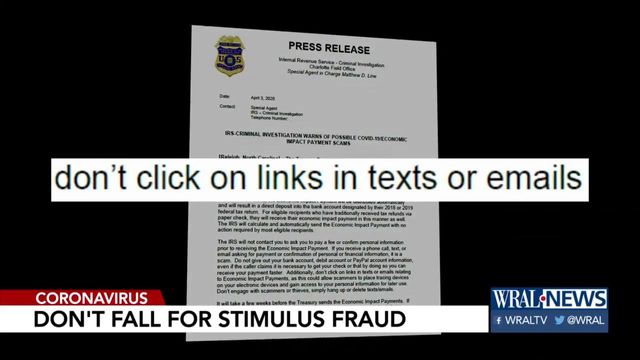Avoid these possible scams and save your stimulus payment
The federal stimulus payments being disbursed to all American taxpayers are a scammer’s dream. The standard precautions apply: Never give your personal information to a person or agency unless you sought it out.
While you can check the status of your stimulus payment with the IRS, make sure you use the official site at IRS.gov.
The IRS will not email or call taxpayers, even to verify information. If you get such a call, hang up. Don't click any links in emails that claim to be related to the stimulus payments.
The IRS will not require a fee or payment to confirm any information or to disburse stimulus funds.
There is no way to get your payment faster, so don't pay or give information to any person or service offering that.
Don't share your bank or debit card account information or even information about a PayPal or other money transfer account.
If you paid your 2018 and 2019 taxes and the IRS has your bank information on file, stimulus money will be delivered by direct deposit.
Others will get a check in the mail. If you receive a check for an odd amount, say with cents, it’s fraud. If you received a check that requires a phone call or online verification, it's fraud.
The best advice is to spend the time to closely look over and verify any communication about the stimulus.
The time you spend will be worth the money you save.













